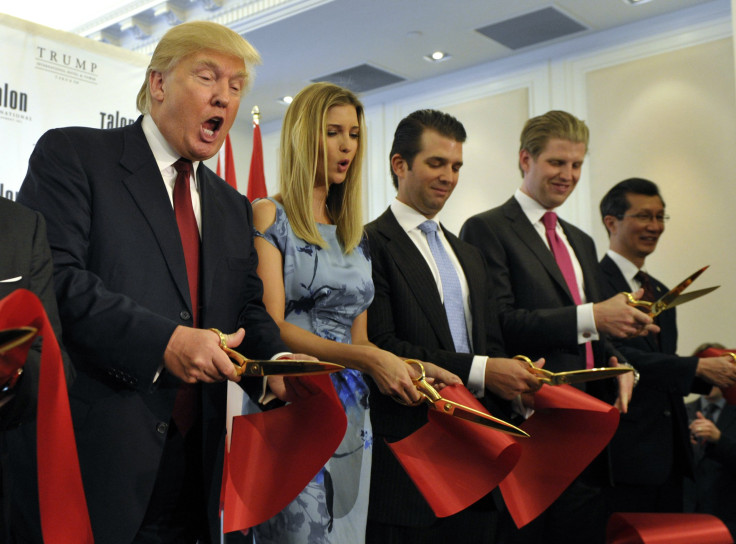Women In Business: With Female Corporate Board Members Less Present In US Than Most Of The Developed World, Can Ivanka Trump Help?

Days after a study of the top 500 U.S. firms revealed a small rise in the number of board seats held by women, a new, much broader study threw a damper on the news Wednesday. The U.S. lags far behind much of the developed world when it comes to gender diversity on corporate boards.
Of 44 countries—home to 1,491 firms—the U.S. ranked 34th in terms of growth of gender diversity between 2012 and 2016, behind nations like Malaysia, the United Arab Emirates and India, according to a report by the Zurich-based executive research firm Egon Zehnder. Compared to skyrocketing growth in the percentage of female board members in Canada and Europe, growth in the U.S. drooped.
Ranked by the average number of women per board over the same period, the U.S. came in 19th place, with about two women per board, approximately equal to the average across the 44 nations, which included Saudi Arabia, Colombia, Russia and Turkey as well. (Corporate boards held, on average, 11.5 seats.)
Leading the pack was France, with an average of more than five women per board, followed by Germany, Sweden, Italy, Norway and Belgium, all of which except Sweden have imposed quotas requiring corporate boards to maintain between 30 and 50 percent female membership.
While this policy method has clearly worked for European nations, such a law would likely create friction in the U.S. due to the “culture of independence” among American firms’ board members, according to Carol Singleton Slade, a leader at Egon Zehnder’s executive and board advisory services.
“I think it’s a different thing in the U.S., from a cultural perspective—it’s not something I think is going to work,” she said. “I think there’d be a lot of pushback against quotas and that sort of policy ... I think the directors take their independence very seriously.”
Still, in three of the countries with quotas—France, Germany and Belgium—the boardroom experience levels among female candidates were far above average, the report found. But the U.S., she added, could take a step in the right direction with one major policy fix. Among 185 nations studied by the International Labour Organization, the U.S. is one of two countries without government-mandated paid maternity leave, something Singleton Slade called “quite a shocking place to be.”
While the report noted that the private sector, and notably the tech industry, had been doing their part to raise the U.S. to the level of its peers in terms of female representation in the corporate world, many have placed their bets on President Donald Trump’s eldest daughter, Ivanka, whom he credited with the creation of his campaign’s maternity leave proposal.
Ivanka Trump, who left her executive position at her father’s company to “settle our three young children into their new home and schools” while her husband starts a new White House job, appears poised to champion the cause of women in the world of big business, if not in other circles.
While it’s unclear whether she’ll take the boardroom quota route, she reportedly hosted a dinner party of elite female executives, including designer Tory Burch and IBM CEO Ginni Rometty, in mid-January at the home of Wendi Murdoch, the wife of Rupert Murdoch, who owns News Corporation, the parent of Fox News. More recently, she reported via Twitter that “leveling the playing field for women in the workforce was one of the key topics discussed” at a Tuesday meeting of her father’s group of business advisers.
At last week's Business Advisory Council meeting, leveling the playing field for women in the workforce was one of the key topics discussed. pic.twitter.com/2mygrK4dQv
— Ivanka Trump (@IvankaTrump) February 7, 2017
© Copyright IBTimes 2024. All rights reserved.






















